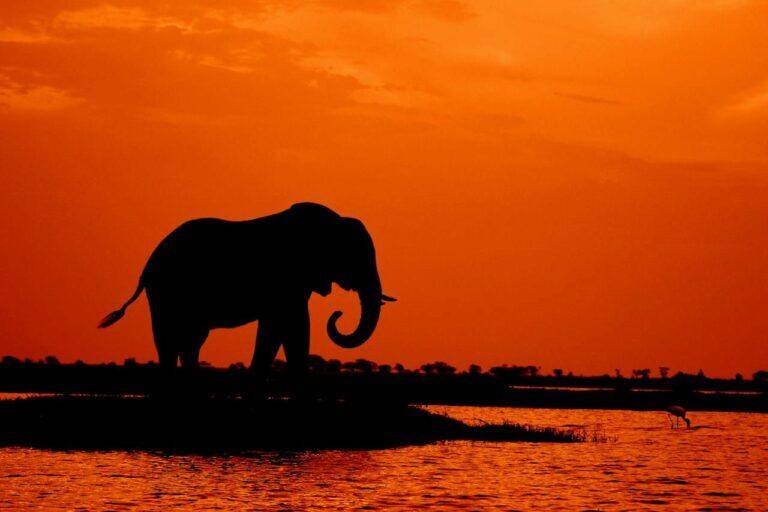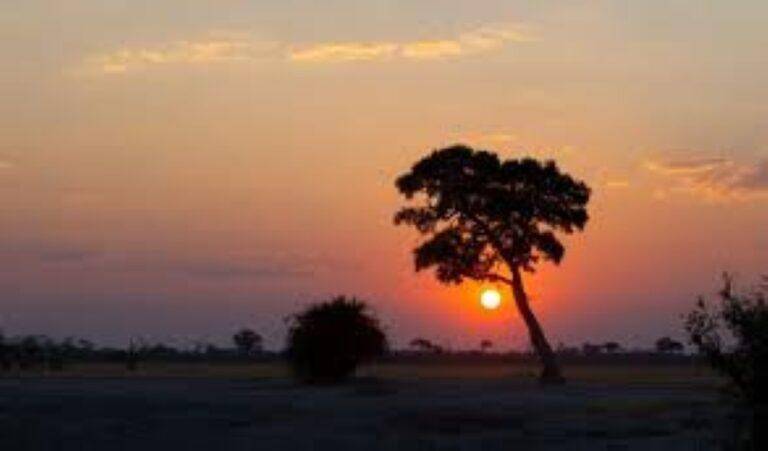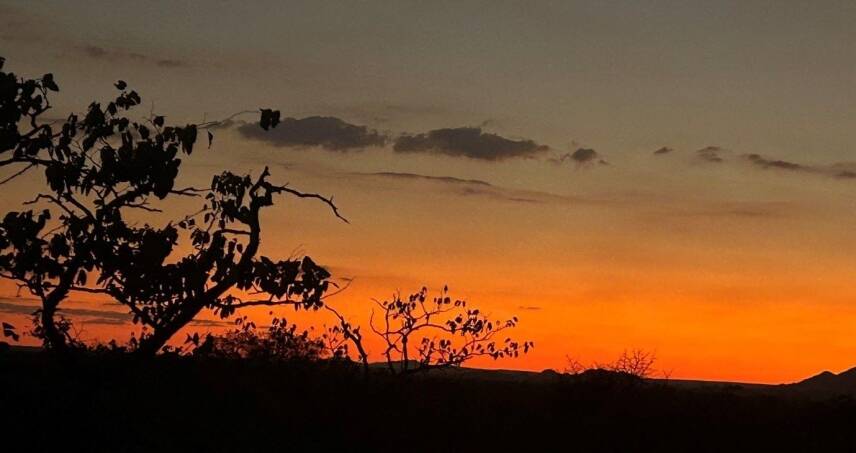Big game hunting in Africa has long drawn enthusiasts from around the world, offering a unique connection to nature and wildlife. However, the changing climate is beginning to reshape this experience in ways we can’t ignore. Rising temperatures, shifting ecosystems, and unpredictable weather patterns are altering habitats and animal behavior, creating new challenges for both hunters and conservation efforts.
As the environment changes, so do the dynamics of big game populations. Species that once thrived in specific regions are now facing habitat loss and migration, impacting the opportunities and sustainability of hunting safaris. Understanding these shifts is essential not just for hunters but for preserving Africa’s rich biodiversity.
[DYNAMIC-BLOGTABLEOFCONTENT]
Key Takeaways
- Climate change is significantly impacting big game hunting in Africa by altering ecosystems, animal behaviors, and migration patterns, creating challenges for hunters and conservationists.
- Rising temperatures, habitat loss, and shifting vegetation zones are reshaping wildlife distribution, affecting the availability of iconic species for hunting and conservation efforts.
- Stricter regulations and reduced hunting quotas are being implemented to protect vulnerable species, but they also pose economic challenges for local communities reliant on hunting tourism.
- Sustainable hunting practices, such as targeting older animals and adhering to ethical standards, contribute to conservation initiatives and support biodiversity preservation.
- Partnerships between governments, NGOs, and safari operators are crucial in funding anti-poaching efforts, habitat restoration, and fostering community-based conservation programs.
- Adapting to environmental changes through responsible hunting and conservation strategies ensures both the protection of Africa’s unique wildlife and the future viability of big game hunting.
Overview Of Big Game Hunting In Africa
Big game hunting in Africa is a significant activity that attracts enthusiasts from around the globe. African hunting safaris offer a chance to pursue iconic species like lions, elephants, buffaloes, leopards, and rhinoceroses, collectively known as the “Big Five.” These hunts are often organized through Game Hunting Safaris or African Hunting Safari Brokers, providing expert guidance and facilitating legal and sustainable hunting practices.
Many hunters focus on specific regions due to their rich biodiversity. Countries like South Africa, Namibia, Tanzania, and Zimbabwe are leading destinations for African hunt experiences. Hunting in South Africa, for example, is highly popular thanks to its well-managed reserves, private estates, and vast wildlife populations. These destinations also contribute significantly to local economies through tourism and conservation partnerships.
The industry plays a dual role. On one side, it supports conservation projects by funding wildlife management programs and anti-poaching measures. On the other, it gives hunters the thrill of pursuing game while adhering to regulated and ethical practices. Hunting trips in Africa are typically well-structured, from the initial permits to the selection of game species based on population data. African Hunting Safari Brokers play a key role in ensuring these processes align with regional laws and international regulations.
The relevance of big game hunting today is tied closely to environmental changes. Climate change and wildlife migration patterns are affecting animal movements, population densities, and even altered hunting seasons in Africa. Hunters and conservationists alike are adapting to these challenges to ensure long-term sustainability. Practices like limiting quotas, targeting older animals, and funding habitat restoration are examples of these efforts.
Those interested in learning more about game hunting safaris, regulations, and current trends can visit Game Hunting Safaris for comprehensive insights.
African big game hunting has long captivated adventurers drawn to the majestic landscapes and iconic species like lions, elephants, and leopards. However, evolving environmental conditions, including climate change, are altering this cherished experience. Understanding these dynamics is essential for anyone planning hunting trips in Africa or engaging with sustainable hunting practices.

Understanding Climate Change In Africa
Climate changes are reshaping Africa’s ecosystems, influencing wildlife populations and their natural habitats. Rising temperatures, unpredictable weather, and shifting vegetation zones are directly impacting big game behaviors and migration patterns. These factors pose challenges not just to our hunting experiences but also to the efforts in conserving Africa’s unique biodiversity.
Key Environmental Changes
Africa has experienced an average temperature increase of 1.2°F over the past century, with some regions warming faster than others. This warming triggers prolonged droughts in areas like southern Africa, affecting water sources crucial for wildlife. Rain patterns are also changing, with shorter, more intense rainy seasons disrupting the natural cycles of plant growth and grazing habitats.
In addition, desertification is expanding into ecosystems like the Sahel, while sea levels rise in coastal regions, reducing available habitat. The ripple effects of these changes impact migration routes and feeding grounds for species commonly targeted in African big game hunts, such as antelopes or elephants.
Implications for Wildlife Habitats
Shrinking habitats force wildlife into smaller areas, increasing competition for water and food. For example, species like buffaloes and zebras may encroach on territories traditionally dominated by predators such as lions, altering the hunting dynamics. This affects not only the sustainability of big game hunting but also the ethical considerations we emphasize in practices like lion hunting in Africa.
On the other hand, climate-promoted migrations push certain species toward new habitats. This could result in altered hunting seasons in Africa, as animals adapt to surviving in previously uninhabitable areas. For hunters, timing becomes unpredictable, requiring more advanced planning and insight from African Hunting Safari Brokers or local guides.
For those who aspire to balance conservation with the thrill of the hunt, African safaris remain a vital tool. Ethically managed hunts on reserves often fund anti-poaching programs and habitat restoration. Learn more about how to support these efforts by visiting Game Hunting Safaris.
Adapting to these environmental challenges ensures that future generations can continue to appreciate Africa’s wildlife through sustainable hunting and responsible conservation practices.
Impact Of Climate Change On Animal Populations
Climate change is reshaping ecosystems in Africa, directly affecting the species central to big game hunting. Rising temperatures and unpredictable weather events are influencing animal behaviors, habitats, and survival rates.
Migration Patterns And Distribution
Shifts in rainfall and vegetation due to climate change are driving wildlife migration to new areas. Key species like elephants and buffaloes are moving farther to find water and food, leaving traditional hunting zones less populated. In Hunting Trips in Africa, this disrupts familiar routes and requires innovative tracking methods.
Some species are migrating beyond national park boundaries, complicating conservation and sustainable hunting practices. For example, zebra populations in East Africa are increasingly found in community lands. Hunters depend on experienced local guides to adapt to these changes, focusing on areas where wildlife distribution remains steady.
Decline In Species And Biodiversity
Climate stresses like droughts and habitat loss are accelerating declines in iconic species like lions and rhinoceroses. Lion hunting in Africa faces challenges as prey scarcity and increased competition push lion populations downward. Southern regions, including reserves for hunting in South Africa, report noticeable reductions in certain game species due to shrinking ecosystems.
The declining biodiversity disrupts balanced ecosystems, influencing big game behavioral changes and hunting opportunities. If species like kudu or sable antelope decline sharply, the sustainability of Africa big game hunts is threatened. Game Hunting Safaris are taking steps, such as funding breeding programs, to counteract these effects. To continue enjoying African hunts, conservationists and hunters alike must collaborate to preserve the diversity of wildlife. Visit Game Hunting Safaris for more insights on achieving this balance.

Challenges Faced By Hunters
Climate change is restructuring ecosystems across Africa, creating obstacles for those embarking on African hunting safaris. From shifting regulations to economic implications for local communities, hunters encounter evolving difficulties during Africa big game hunts.
Restrictions And Changing Regulations
Regulations surrounding big game hunting have become stricter as conservation policies are adapting to climate-driven challenges. Governments and organizations are intensifying oversight to balance preservation with sustainable hunting practices. For instance, specific quotas for lions or rhinoceroses have been reduced due to population declines, ensuring species survival takes precedence over hunting demands.
Increased legal boundaries limit hunting zones as some areas, impacted by habitat loss, are marked as protected reserves. Permits now require more rigorous approval, and African Hunting Safari Brokers must align with these policies to plan ethical trips. Hunters planning lion hunting in Africa or other ventures often face delays in securing legal permissions, impacting the frequency and predictability of hunting trips in Africa.
Economic Consequences For Local Communities
Local communities reliant on Game Hunting Safaris for economic stability face growing financial strain. Reduced quotas and altered hunting seasons in Africa translate to fewer visiting hunters, shrinking income provided by safari activities. These funds previously supported anti-poaching units, community projects, and job creation.
For instance, communities near prime hunting destinations like South Africa and Namibia often depend on consistent hunter participation. Without sustainable hunting practices or diversified income sources, such regions may struggle to maintain conservation programs, potentially leading to unchecked environmental degradation.
Conservation Efforts And Sustainable Hunting Practices
Big game hunting in Africa faces significant challenges due to climate change and ecosystem shifts. Conservation and sustainability are crucial to preserving wildlife populations and ensuring hunting remains viable. Collaborative efforts play a key role in protecting species and habitats while supporting ethical hunting practices.
Role Of Governments And NGOs
Governments and NGOs implement policies and initiatives to balance conservation and sustainable hunting. Many African nations, including South Africa, Namibia, and Tanzania, regulate big game hunting through strict enforcement of quotas and hunting licenses. These measures ensure species like elephants and lions receive protection while allowing hunting in controlled environments.
NGOs such as the African Wildlife Foundation and World Wildlife Fund invest in habitat restoration and anti-poaching programs. Funding from African Hunting Safaris supports on-the-ground efforts to combat illegal wildlife trade and monitor populations of vulnerable species. Partnerships between governments, NGOs, and Hunting Safari Brokers promote community-driven conservation that benefits local economies and biodiversity.
For example, regulated hunting in reserves like Namibia’s Kunene region has helped stabilize populations of species like black rhinos. Revenue from legal hunting trips often funds anti-poaching units and provides local communities with sustainable income sources, reducing reliance on harmful activities like deforestation.
Promoting Ethical Hunting Standards
Ethical hunting practices focus on safeguarding wildlife and adhering to conservation goals. Game Hunting Safaris prioritize sustainable hunting by offering guided hunts with experienced professionals who understand local ecosystems. These guides work closely with conservationists to track species migration, ensuring no long-term harm to populations.
Ethical hunters avoid targeting species experiencing significant behavioral changes due to climate change or habitat loss. For instance, lion hunting in Africa often follows permit systems that restrict hunts to older, non-breeding males. These policies prevent disruptions to pride dynamics, ensuring lion populations remain stable.
Organizations advocate for practices like “fair chase,” where hunters pursue animals without artificial advantages. This approach respects the natural behavior of big game species, aligning with the principle of sustainable hunting. African Hunting Safari Brokers often educate clients about conservation issues and encourage participation in initiatives that support wildlife.
Adopting responsible behaviors during hunting trips in Africa, such as using eco-friendly equipment and minimizing waste, further demonstrates a commitment to preserving ecosystems. Visitors can contribute directly by choosing African safaris with transparent conservation goals, strengthening efforts to protect Africa’s iconic fauna.
Conclusion
The impact of climate change on big game hunting in Africa is undeniable, reshaping ecosystems, wildlife behaviors, and the future of sustainable hunting. As hunters and conservationists, we must adapt to these challenges by supporting ethical practices, habitat restoration, and collaborative efforts that balance preservation with responsible hunting.
By staying informed and working together, we can protect Africa’s iconic species and ensure the longevity of its rich biodiversity. Sustainable hunting isn’t just about tradition; it’s about securing a future where wildlife and communities thrive side by side.
Frequently Asked Questions
How is climate change affecting big game hunting in Africa?
Climate change is altering ecosystems, shrinking wildlife habitats, and shifting species’ migration patterns. Rising temperatures and unpredictable weather affect animal behaviors, making traditional hunting seasons and zones less predictable. Hunters and conservationists are adapting by using advanced tracking methods, limiting quotas, and funding habitat restoration.
What challenges do hunters face due to climate change?
Hunters face stricter regulations, reduced quotas for vulnerable species, and delays in obtaining permits. Shifts in animal migration complicate tracking, while unpredictable weather impacts hunting conditions. These challenges increase planning needs and may limit hunting opportunities.
How does big game hunting contribute to conservation?
Legal, well-regulated hunts fund anti-poaching units, habitat restoration, and breeding programs. Hunting fees support conservation projects and local community initiatives, ensuring economic benefits while promoting wildlife preservation and population stability.
What are the key hunting destinations in Africa?
Top destinations for big game hunting include South Africa, Namibia, Tanzania, and Zimbabwe. These countries have managed reserves, ethical hunting practices, and regulations that balance hunting tourism with conservation goals.
How is climate change impacting wildlife behavior?
Rising temperatures and shifting rainfall patterns disrupt migration pathways and habitats. Species like elephants and buffaloes migrate longer distances in search of water and food, while habitat loss increases competition for resources, affecting population dynamics.
Why are hunting quotas becoming stricter?
Quotas are stricter to protect vulnerable species like lions and rhinoceroses from overhunting as populations decline due to habitat loss and climate change. These regulations help ensure sustainable hunting practices and biodiversity conservation.
How does big game hunting benefit local communities?
Hunting safaris contribute to local economies by creating jobs and funding community projects. Revenue from hunting helps sustain livelihoods and supports anti-poaching efforts, benefiting both residents and wildlife preservation.
What ethical standards are encouraged for hunters?
Ethical hunters are urged to follow quotas and permit systems, avoid targeting vulnerable species, and prioritize sustainable hunting practices. Responsible hunting safeguards wildlife diversity and aligns with conservation efforts.
How are conservationists addressing climate change’s impact on hunting?
Conservationists collaborate with hunters to restore habitats, establish stricter quotas, and fund biodiversity programs. These efforts aim to adapt to climate-driven challenges, ensuring the sustainability of game hunting and species protection.
Are hunting safaris still sustainable amidst climate change?
Yes, but sustainability depends on strict regulations, ethical practices, and conservation-focused initiatives. Funding habitat restoration, limiting quotas, and collaboration between hunters and conservationists are key to adapting hunting safaris to climate challenges.
